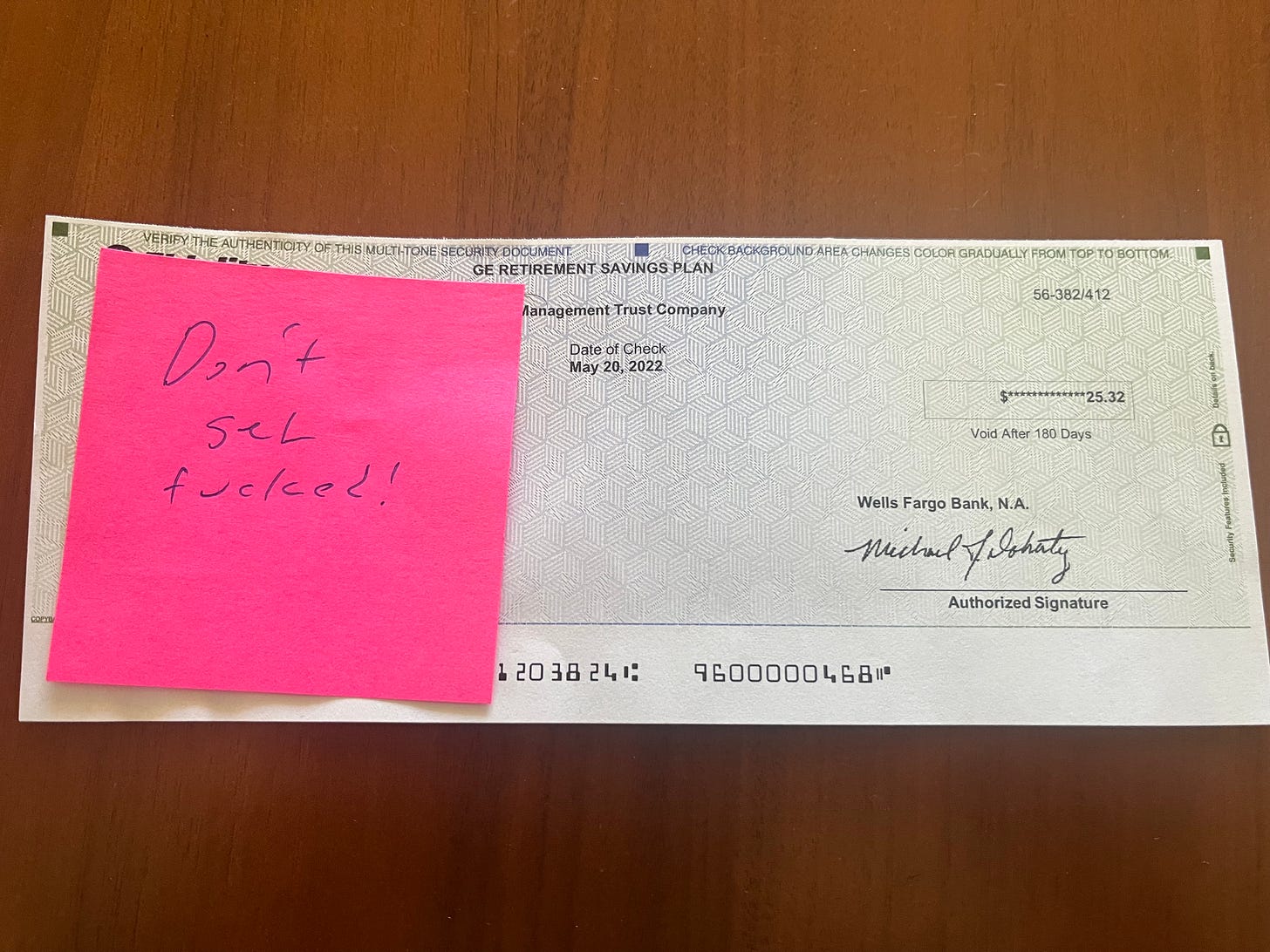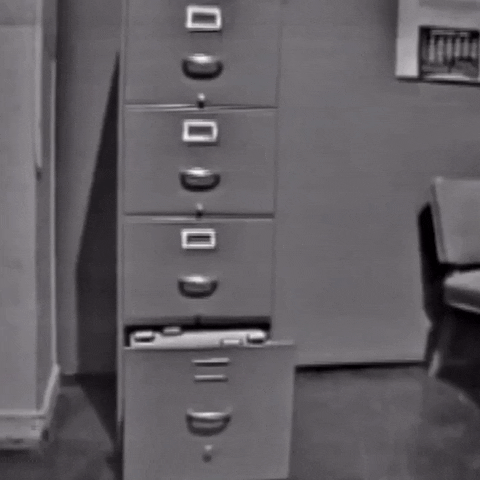
In The Waste Land, T. S. Eliot wrote, “April is the cruelest month, breeding lilacs out of the dead land, mixing memory and desire, stirring dull roots with spring rain.” Serious scholars say Eliot’s attack on April was a modernist take on the cruelty of spring’s renewal, juxtaposed against the horrors of WWI and its deadlier wingman, the 1918 Spanish flu.1 But non-serious scholars know better. The real reason Eliot hated April was simple: taxes.
A few years before renouncing his U.S. citizenship and becoming a British subject, Eliot published The Waste Land. According to the IRS, the poem was an epic taxable event. Unfortunately, Eliot neglected to send his friend and critique partner, Ezra Pound, a 1099. This cost both men dearly. Without his largest deduction, Eliot paid a higher marginal tax rate than Warren Buffett’s secretary. Meanwhile, Ezra Pound got nailed for failing to declare his freelance income. He escaped prosecution, however, by fleeing to Italy, where he collaborated with fascists during WWII, before going on to front the alternative rock band, Better Than Ezra.
For the rest of their lives, both men tried to tell anyone who would listen that the opening line about April being the cruelest month was a coded warning about the U.S. tax code. But as I said, serious scholars don’t believe that, probably because serious scholars know better than to fuck with the IRS. But I am not a serious scholar. I write humor, which gives me the latitude to explore the deeper truths serious scholars would never touch.
Here is the first draft of the opening to The Waste Land, the one Pound told Eliot was “too on the nose,” even if it was a crystal clear warning to Americans about the real menace each April brings:
April is the cruelest month, breeding
Liabilities out of the taxable events, mixing
Deductions and income, stirring
Loopholes within TurboTax
It’s April. Americans should be celebrating spring, baseball’s return, April Fool’s Day, Earth Day, and Stoner Christmas. But Americans don’t have time to celebrate. We’re too busy preparing our taxes, even though the IRS already has all the information it needs to prepare the returns of more than 60 million American taxpayers.2
Thankfully, I have a system for corralling the information I need to face the onslaught of confusing financial documents and Byzantine tax regulations that comes every April. As a freelance writer, it’s important to have a system because the law requires you to make estimated tax payments3 every quarter, in addition to filing an annual return in April. Here’s my system.
I track my income in a spreadsheet, even though spreadsheets scare the bejesus out of me.4
Beginning in January, I badger our mail carrier to deliver all of my 1099s ASAP, even though we both know that I write for some rather shady outfits that can’t be bothered to 1099 anyone.5
I keep digital and hardcopy files that contain receipts for business expenses that will, in all likelihood, not be deductible because America hates freelance writers more than it hates Warren Buffett’s secretary.
On April 2, I opened my hardcopy file so that I could begin the process of getting right with the law. I might’ve done this on April 1, but taxes are no joke. Anyway, there were a lot of papers in the file. Papers of the 1099 variety. Papers proving that Christina and I have health insurance, even though we carry plastic cards in our wallets that prove the same thing. Papers that are receipts for goods and services that help me work, even though the IRS might not agree that those expenses are deductible.6 But among all those papers, one stood out. It was a check for $25.32. There was a pink Post-it Note stuck to the check. Written on the note were three words: “Don’t get fucked!”
While the note was written in my handwriting and the words “don’t get fucked” capture of my attitude toward taxes perfectly, I had no idea what the note meant. So I did what any amateur sleuth would do. I asked my wife.
“No clue,” Christina said. “Sounds like a five-minute mystery to me.”
Usually, Christina and I love five-minute mysteries. They’re short, fun, and satisfying. They’re also good material.7 But the key to a good five-minute mystery is the stakes. They have to be low. Like missing Limbo stick low. High stakes mysteries like murder, Ponzi schemes, and stolen catalytic convertors won’t do. No matter how quickly you solve those mysteries, the stakes are just too high to be fun.
The $25 check and the cryptic Post-it Note were somewhere between high stakes and low stakes. After all, $25 isn’t much in the grand scheme of things, but taxes are right up there with death on the seriousness scale.
“Did we even cash the check?” Christina asked.
“Great question!”
I logged into our Wells Fargo account. It was dusty in there because stage coaches kick up a lot of dust. But when the dust cleared, I saw that we had cashed the check via the Wells Fargo mobile app back in May. Then, for some reason, I wrote, “don’t get fucked” on a pink Post-it Note, stuck the note on the check, and stuck the check in my 2022 tax file.
For the next week, I pondered the meaning of the note. Like all notes, it was a message from the past. Clearly, Past Michael didn’t want Future Michael to get fucked. But Past Michael had put a lot of faith in Future Michael’s memory. I couldn’t do anything about Past Michael’s mistake, but I could look for ways to jog Future Michael’s Memory. So I Googled “tricks to remember something you forgot.” The top two results were from WikiHow, a publisher that built a business on bad answers and good SEO.
I’m always pressed for time during tax season, so I clicked on “5 ways to remember something” because it seemed more efficient than “How to remember something you forgot: 12 steps.” But the first article was crap, and the second article was too.
“Two questions, honey.”
“Shoot,” Christina said.
“First, do we know anyone who does hypnosis? Second, is hypnosis tax deductible if you’re using it to figure out a cryptic note in your tax file?”
“I think I know someone who does hypnosis,” Christina said. “But I can’t remember who.”
“Man alive, the five-minute mysteries are mounting this tax season.”
“But we won’t be able to deduct the hypnotist on our 2022 tax return.”
“Drat! The case of the forgotten hypnotist is next year’s problem.”
“Maybe. But honestly, is this even a problem? It’s only twenty-five bucks.”
“But the note,” I said. “Don’t get fucked. That’s an ominous warning.”
“Well, what do you want to do?” Christina asked.
I thought about it, and to help Christina visualize my thought process, I stroked my chin.
“Declare it.”
“What?”
“You heard me. Let’s declare it as income.”
“But it’s only twenty-five bucks. They don’t have to 1099 you if it’s under six hundred dollars.”
“That’s true,” I said. “But remember the note: don’t get fucked.”
“It’s twenty-five bucks. It won’t make a difference either way.”
“Don’t get fucked.”
“How bad could we get fucked over twenty-five dollars?”
“Don’t get fucked.”
“Why can’t we cheat? Everyone cheats.”
“It’s wrong.”
“Is there a better answer?”
“We’ll get caught?”
“So?”
“Don’t get fucked.”
“Are you sure we have to tell the government? Couldn’t we just fuck around and find out?”
“Fuck around and find out!” I snapped. “That didn’t work out very well for T.S. Eliot and Ezra Pound.”
Christina sighed. After eleven years of marriage, she had heard plenty about what happened to T.S. Eliot and Ezra Pound. She was over it. And she was over this mystery too. So Christina added $25.32 to the appropriate line in our tax return and declared the mystery “over & unsolved.”
“April really is the cruelest fucking month,” she said.
Stick around and chat!
Have you ever come across a note you wrote to yourself that you did not understand?
Is tax season agony for you, or did you outsource your agony to a professional?
Taxes and T.S. Eliot aside, I think April is a lovely month because of spring, baseball, Passover (sometimes), Stoner Christmas, and Earth Day. How do you feel about April?
Obviously, T.S. Eliot wasn’t talking about taxes in The Waste Land. I hope that was obvious! But taxes have inspired some good art. My personal favorite is a Will Ferrell and Maggie Gyllenhaal film called Stranger Than Fiction. Can you think of any other tax-inspired works of art?
Contrary to popular belief, the 1918 Spanish flu did not begin in 1918, nor did it originate in Spain. See The Great Influenza: The Story of the Deadliest Pandemic in History by John M. Barry.
See “Over 60 million Americans have taxes so simple the IRS could do them automatically” in Vox. https://www.vox.com/23055489/irs-automatic-filing-prepopulated-returns
Estimated payments are function of your quarterly revenues. There are lots of ways to estimate your quarterly revenue as a freelance writer, but some of my favorites include: wishful thinking, reading entrails, and vision quests.
Christina made me a spreadsheet when I became a freelancer.
If you’re not from the U.S., The IRS 1099 Form is a collection of tax forms documenting different types of payments made by an individual or a business that typically aren’t from your employer. Please note: Americans use “1099” as both a noun and a verb, but it’s always a dirty word.
I can deduct the computer I used to write this story, and the internet service I use to send you this story. But for some reason, tax experts consider writing essentials like a comfortable hoodie, mind-expanding drugs, and snacks to be “red flags.”
See “The case of the missing laptop” in Situation Normal.









Wow. Taxes, TS Eliot, Ezra Pound AND Better than Ezra (which was a fantastically deep connection - damn) in the same few paragraphs! Love it. And for an artwork that captures perfectly the deadly tedium that is taxes and the IRS ... check out David Foster Wallace’s THE PALE KING. Painful in many ways, but worth it.
4. https://www.wwe.com/superstars/irs